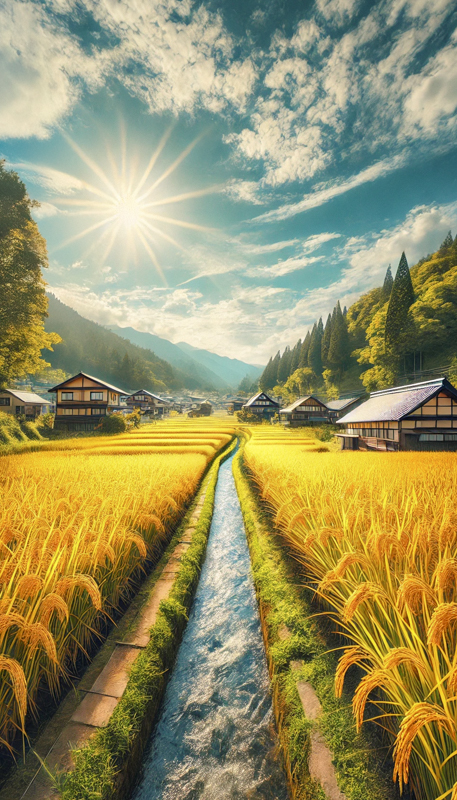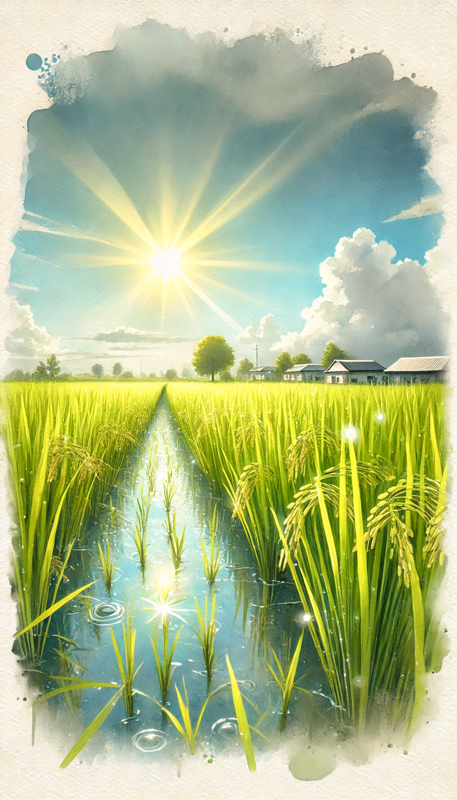
The kanji for “ta” or “den” (rice field) symbolizes the rice paddies in which rice is cultivated. It’s shape depicts a plotted rice field and represents the foundation of Japanese agriculture and food culture.
The rice paddies have long been an important part of Japanese life, and “tanokami” is the guardian deity of the rice paddies.
It is believed that the god of rice paddies comes down from the mountains in the spring to watch over the fields, and returns to the mountains after the harvest in the fall.
The deity of rice paddies also includes Ebisu, the god of commerce and fishery, and Daikokuten, the god of fertility and fortune.
Ebisu is worshipped as the patron god of agriculture as well as fisheries, while Daikokuten is the god of bountiful harvests.
Both deities symbolize the prosperity of agriculture and commerce in Japan, and together with the belief in the god of rice paddies, they express gratitude to nature and the harvest.
This belief is a culture deeply rooted in Japanese rural society.

「田」という漢字は、稲作を行う田んぼを象徴しています。その形は、区画された田んぼの姿を描いており、日本の農業と食文化の基盤を表しています。田んぼは昔から日本人の生活を支えてきた大切な場所であり、「田の神(たのかみ)」はその守護神です。田の神は、春に山から降りてきて田を見守り、秋に収穫が終わると山に帰ると信じられています。
田の神信仰には、商業や漁業の神である恵比寿神(えびすしん)や、豊穣と財運を司る大黒天(だいこくてん)もふくまれます。恵比寿神は漁業だけでなく農業の守護神としても崇められ、大黒天は豊作を祈る神様となっています。これらの神は、日本の農業や商業の繁栄を象徴する存在で、田の神信仰とともに、自然や収穫への感謝の気持ちを表しています。この信仰は、日本の農村社会に深く根付いた文化なのです。